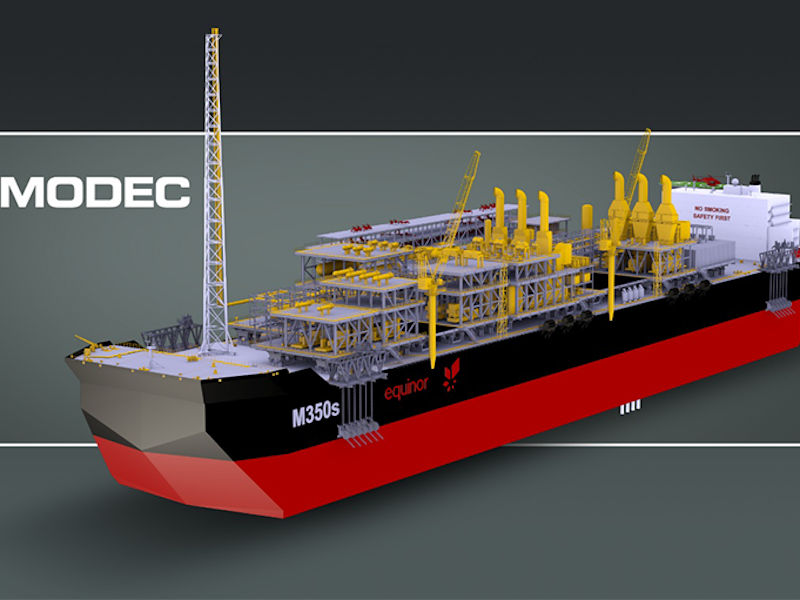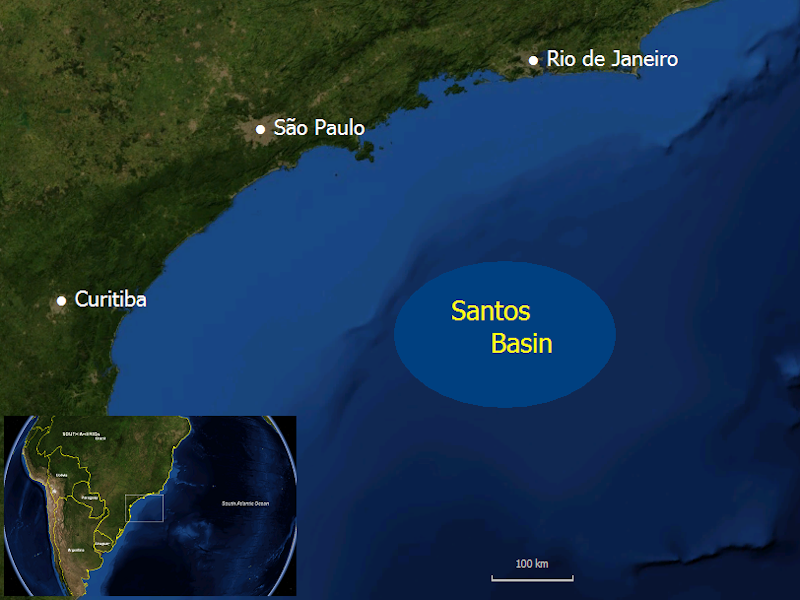Bacalhau (formerly Carcara) is an ultra-deepwater oil field development project targeting pre-salt reservoirs in Santos Basin, Brazil.
The development partners for the project are operator Equinor (40%), ExxonMobil (40%), and PetrogalBrasil (20%). It will be the first greenfield development in Brazil’s pre-salt area by an international operator.
The offshore oil field was discovered by Petrobas in 2012 while Equinor (formerly Statoil) became the operator by acquiring stakes from Petrobas in 2016.
Key engineering contracts for the Bacalhau field development were awarded in January 2020, while the final investment decision (FID) is expected by the end of 2020.
The field is expected to produce up to 220,000 barrels of oil per day (bopd) in phase one with the first oil expected by 2024.
Location, discovery and appraisal details
Discovered in March 2012, the Bacalhau oil field is located in 2,050m-deep waters, approximately 185km off the coast of Ilhabela, São Paulo, Brazil.
The deepwater oil field was discovered by the Carcara exploration well 4-SPS-86B which, drilled up to 2,027m deep beneath the seabed, encountered 171m of net oil pay.
The Carcara discovery was subsequently appraised by Caracara NW and Carcara North appraisal wells followed by drill stem tests that confirmed high productivity as well the light oil production potential of the discovery.
The Bacalhau field encompasses the BM-S-8 block as well as the Bacalhau North block of the Santos Basin.
Recoverable reserves
The greater Bacalhau field area is estimated to contain up to two billion barrels of oil equivalent (Bboe) recoverable reserves.
Bacalhau oil field development plan
The Bacalhau deepwater field development plan involves 19 production wells connected to a floating production storage and offloading (FPSO) unit.
The seabed system will include approximately130km of flowlines and rigid risers, and 35km of umbilicals.
Bacalhau FPSO details
The Bacalhau FPSO will be permanently anchored to the seabed within the BM-S-8 block with spread mooring system. The operational life of the FPSO is estimated to be minimum 25 years.
It will be one of the biggest FPSOs in Brazil, with 220,000bopd of production and two million barrels of storage capacity.
The FPSO will also be capable of producing and injecting up to 530 million cubic feet (Mcf) associated gas a day, apart from 200,000 barrels per day (bpd) of water injection capacity. It will also have living quarters for accommodating up to 160 personnel.
It will be a double hull FPSO vessel based on Mitsui Ocean Development & Engineering Company’s (MODEC) latest M350 hull design to accommodate bigger topsides and more storage capacity.
The hull for the FPSO will be built in Dalian, China, while the manufacturing of topside modules is expected to take place at Aibel’s Laem Chabang yard facility in Thailand.
The integration of modules onto the vessel is planned to be performed in Singapore.
Contractors involved
In January 2020, MODEC received the design and construction contract for the Bacalhau FPSO, after the execution of a pre front-end engineering design (FEED) contract awarded in December 2018.
The FPSO hull will be built by China’s Dalian Shipbuilding Industry (DSIC), while SOFEC, a subsidiary of MODEC Group, will supply the mooring system for the vessel.
Aibel has been selected to provide front end engineering and design (FEED) services with an option for an engineering, procurement and construction (EPC) contract for the topside modules of the FPSO. MODEC signed a letter of intent (LOI) with Aibel for the same in February 2020.
Subsea Integration Alliance, a partnership between Subsea 7 and OneSubsea, was awarded the FEED contract for the subsea umbilicals, risers and flowlines (SURF) of the Bacalhau oil field in January 2020.





